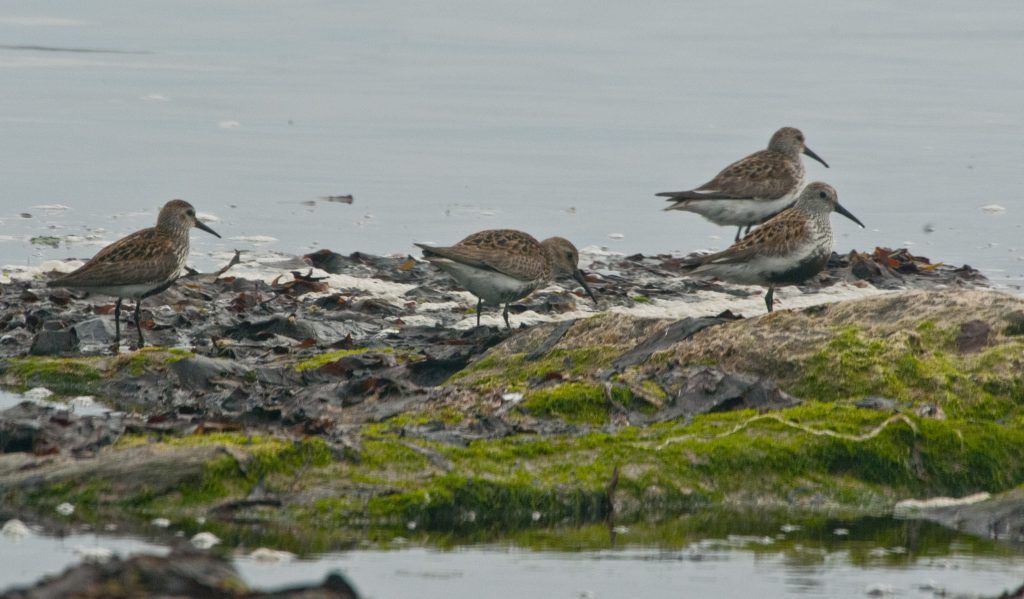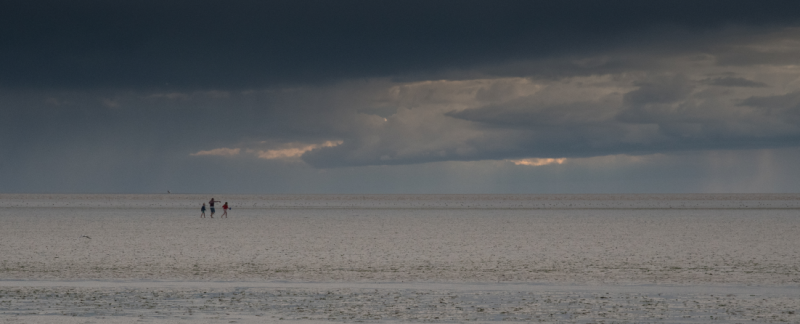As CoP26 (the 26th annual Conference of Parties signed up to the UN’s Convention on Climate Change) gets underway in Glasgow, all eyes are on the global response to climate changes and whether national governments can come together to reduce global Carbon emissions sufficiently to avert some of the frightening effects predicted of ‘Business as Usual’. With most world leaders and tens of thousands of delegates discussing everything from atmospheric physics to social justice, such gatherings can seem a world away from the tranquil vistas of The Wash. But already we are seeing the effects of climate change, and the data archives of the Group, as well as research by Wash Group members has been vital in documenting these.
Perhaps one of the most visible changes, certainly for the Group, has been in the number of birds using The Wash. Although the numbers of some species are increasing, others have declined enormously. One particular example is Dunlin. In the 1980s and 90s this species regularly topped the list of our most caught species, with frequent cannon-net catches, especially on fields during autumn passage. However, the number of birds coming to The Wash has nearly halved in the last two to three decades with peak counts in the 1980s and 90s of around 45,000 birds having dropped to nearer 25,000 now. This is largely because of global warming. Research has shown that many wader species, especially those that breed further north and east in the boreal and Arctic zones are migrating less far in winter as areas that were previously inhospitable become more clement. So most of the Dunlin that might have passed through the Wash are now wintering on the continent.

More generally, sea-levels are rising globally and weather patterns changing, with an increase in the frequency of storms. This means coastal areas, including those around The Wash, are at increased risk of flooding. Saltmarsh, however, provides a great coastal defence, absorbing large amounts of tidal wave energy and reducing flood risk. Sea walls, on the other hand, can be breached, flooding farmland and causing significant economic damage. In recognition of this, one of the areas most recently claimed from The Wash for farmland, Freiston Shore, was allowed to revert back to saltmarsh in 2002. Since then it has become popular with both birds and visitors.
But the effects of climate change can be more subtle. An increasing number of studies are showing that the shape and size of birds is gradually changing. These changes are small and invisible to the ‘naked-eye’, but they are detectable in the large amounts of data collected by WWRG and others (in fact large amounts of data are really necessary to discern the underlying pattern). They may also have profound consequences. For example Jan van Gils and colleagues have recently shown that, over time, the average body size of Knots has been decreasing as their Arctic breeding grounds warm. However, the real toll of this change appears not to happen in the rapidly changing breeding grounds, but when they reach their wintering areas. Smaller, short-billed birds appear to have more difficulty reaching their major food source, deeply buried molluscs, which decreases the survival of those individuals.
So the effects of climate change on the waders that use The Wash are both large and pervasive. The Wash is clearly only a small part of the global picture, but the effects that we are beginning to discern here are multiplied and magnified the world over. Climate change is happening now, and requires action now. Not only does the Group collect the data to help demonstrate these impacts and provide evidence for action, we try to manage our activities as responsibly as we can. So, we have always (Covid aside!) tried to maximize sharing of vehicles on trips, those joining trips can reach us by public transport, and we are increasingly catering with plant-based meals. Small steps, but the onus is on us all to take them as far as we cab, as much as it on the global leaders gathering in Scotland to set the broader policy frameworks.

